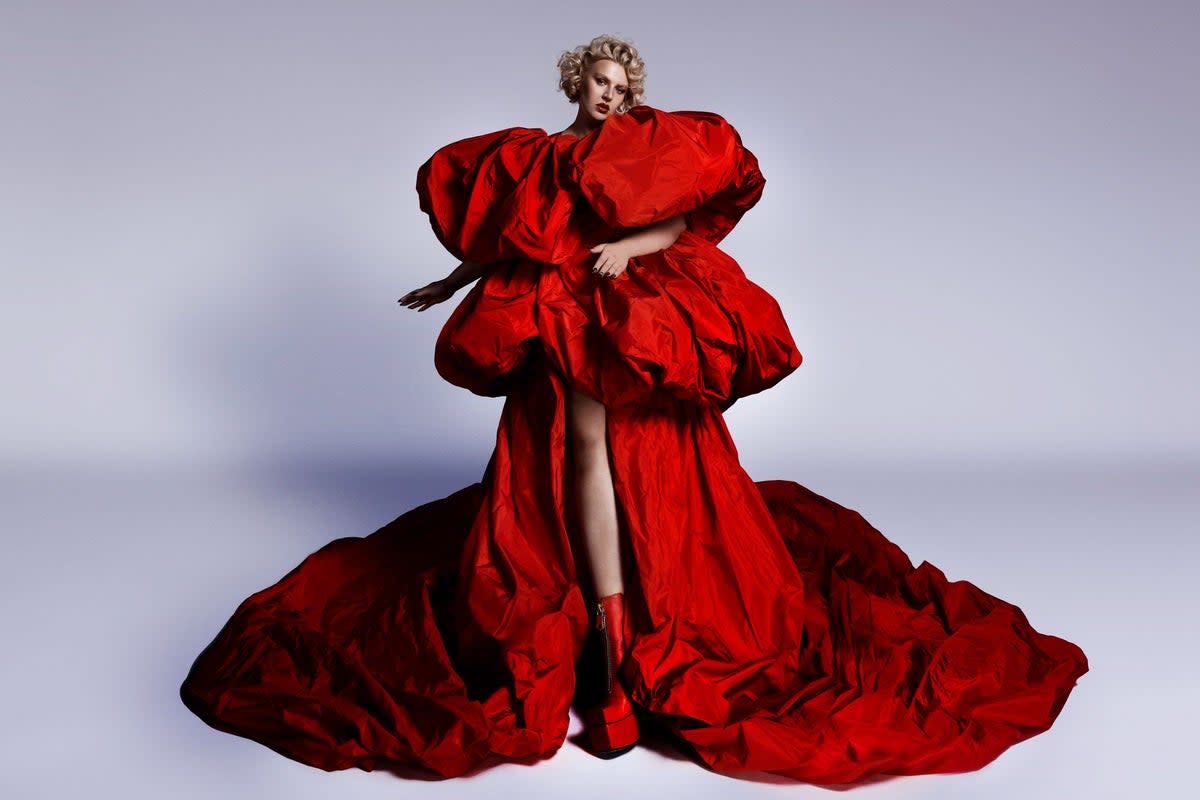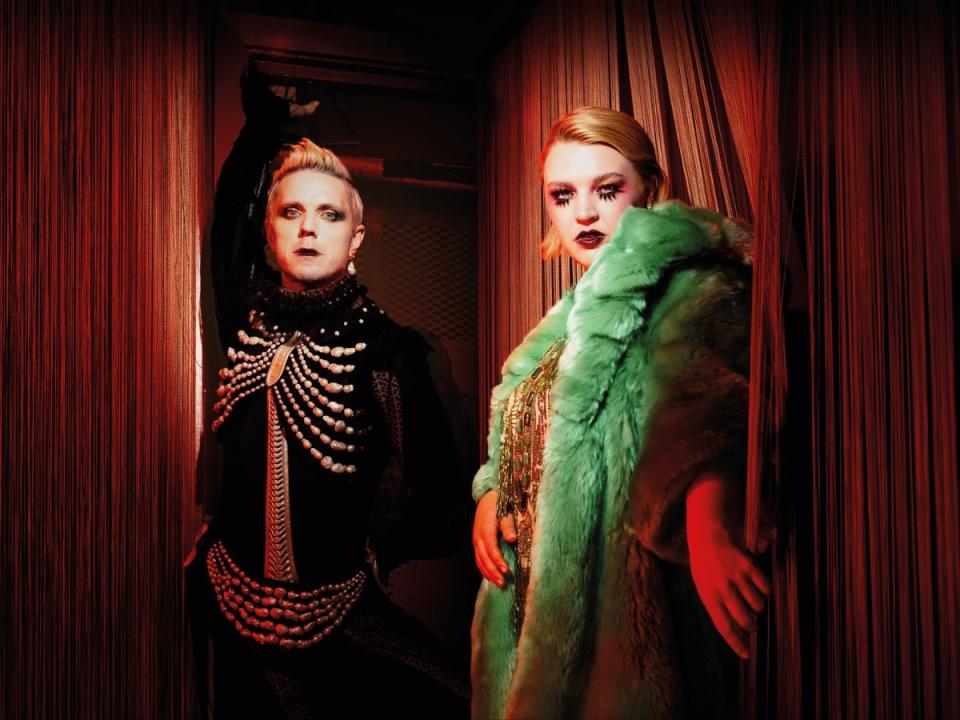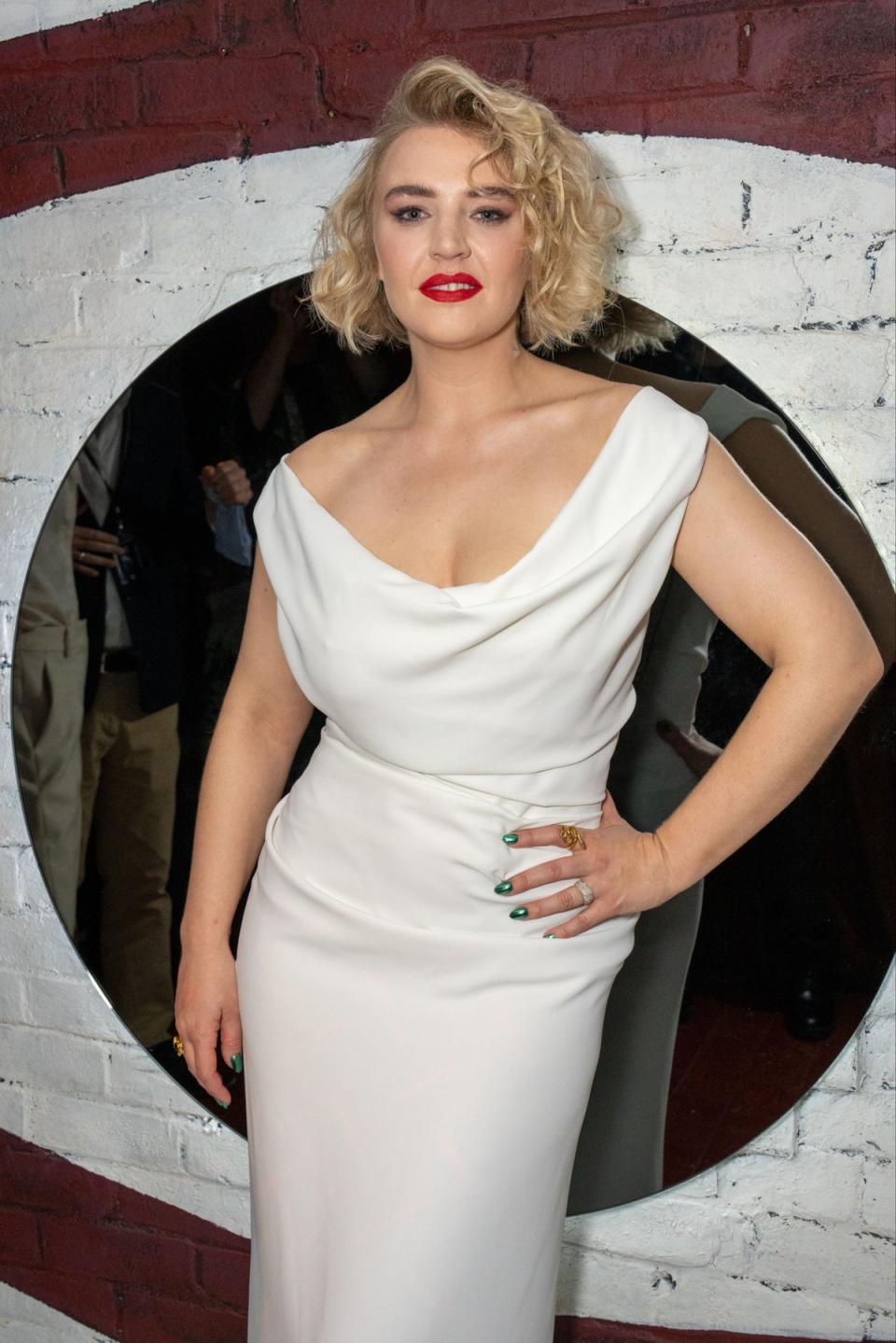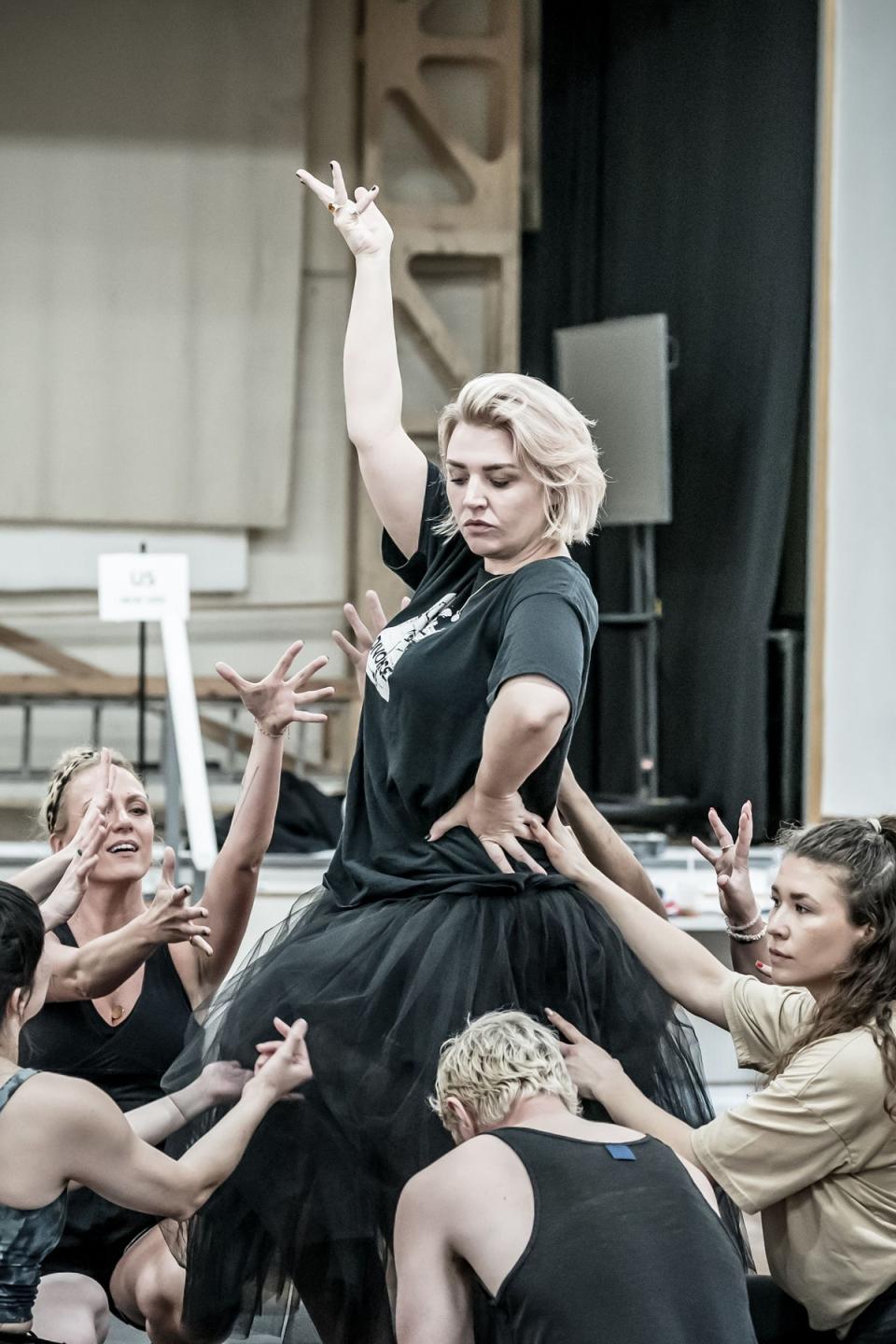Self Esteem: 'Men are terrified of me'

It’s an interesting time to stage a show like Cabaret. Beneath all the glitter, sex and celebration of queer joy, the musical — set in Thirties Berlin, and made famous by the 1972 film starring Liza Minnelli — is really a disquieting exploration of the rise of anti-Semitism in inter-war Germany.
“It does feel poignant right now,” says Rebecca Lucy Taylor, the 37-year-old pop icon better known as Self Esteem. After two years of stratospheric success in which she was nominated for the Mercury Prize, garnered five-star reviews from almost every news outlet for her album Prioritise Pleasure, played countless sold-out shows and became the actual voice of the millennial generation (more than one fan has lyrics from breakout single I Do This All The Time tattooed on them), she’s taken a pause from pop to star as Sally Bowles (the role which earned Minnelli an Oscar) alongside Jake Shears in the current West End production.

“I mean, this show was already feeling poignant to me personally because I’m very invested in Sally’s journey — she craves normal ‘2.4ness’ but doesn’t fit that mould and beats herself up about it. Then when she finally gets a chance to be the ‘nicey wifey’ she just can’t do it — that’s Self Esteem 101. That’s what I’ve been banging on about this whole time,” she says.
We’re sitting in her tiny dressing room at the Playhouse Theatre (“Jake’s is a lot bigger,” she’d quipped as she welcomed me in). “I think, during rehearsals,” she continues, “I realised just how relevant this show is.” She draws parallels between Thirties Germany and “the sleepwalking into fascism that happened” and the highly polarised world we live in today. “In the play we see the germination of Nazi ideology — how people stopped thinking empathetically or compassionately and began thinking territorially...It reminded me of the constant f****** arguments I have with strangers on the internet, who have a problem with me when I say I’m pro-trans people. It blows my mind, it feels very like they [fascists] walk among us.”
In person, Taylor is as forthright and droll as you’d expect from her lyrics — tragicomic soundbites which articulate the soul-crushing expectations society puts on individuals, particularly on women. In her twenties she garnered modest success as one half of indie duo Slow Club but found herself never “quite fitting in — I was never going to please the people in Indie-land, but I tried. For years. And I was really, really unhappy for most of it.” When she finally began creating music as Self Esteem (joyful, empowered, sing-a-long pop), she “worked so hard for it to be about pleasing nobody but myself”. Class, body image, sexuality, sexual assault — the themes she began exploring felt radical, especially in an industry like music, which has yet to have its MeToo moment, despite so many well-known instances of exploitation, assault and worse. “The point I always try to make about women’s safety in that industry is really linked to how little money there is in music now because there’s a huge gap between those few massive artists and everyone else. And inevitably you’re always made to feel like someone is doing you a favour — and that’s where the grey areas appear. It’s this attitude like, ‘Well, they’re doing this for half price so if you want to get to Edinburgh you’re just going to have to suck it up and deal with the pervert driver.’”

In the past she has spoken about wanting “to use the palatable nature of pop to Trojan horse in my agenda”. That forthrightly feminist agenda rejected all the ideals that for so long had been foisted on her by the industry — though, those ideals are still there. “The model of what a female artist should be is alive and well,” she says. “Like I could lose a ton of weight, get loads of work done and try to convince America that I’m 27 — and I’ve had that advice. But I just can’t be arsed.”
Though she’s rarely shied away from speaking her truth, being forthright can take its toll. Last year she decided to scale-down her presence on social media, Twitter in particular. “Twitter is just so horrible and fraught… there’s no room for nuance.” She points to how polarised the debate about Israel-Palestine has become online: “Saying something like ‘Free Palestine’ immediately makes you anti-Semitic and that, something as simple as that, shuts down discourse. It means there’s no actual critical thinking going on here.”
She’s reminded, she tells me, of a portion of Cabaret “where everyone’s at a party and they start singing this nationalistic song. In rehearsals we talked a lot about why various characters would be joining in. For some it’s because they’re like, ‘Yes, I love my country!’, others are like, ‘Yes, I agree with that Nazi ideology,’ and some join in just because everyone else is doing it. I’m slowly realising that, outside of my bubble, that’s effectively the world we live in now — some people believe what they’re saying, some people just go along with the mob.” About the war, she seems as despairing as all of us. “It’s so hard to know what to say or if you’re doing enough… I don’t know, man, it’s easier for me to whinge about societal norms and the pressure to have children, I can give you loads on that,” she laughs.
Taylor sees this recent switch to acting as less of a career shift and more of a homecoming. “Theatre was always my first love, right from school. But I tried for drama school and didn’t get in… now I’m like, ‘Oh of course you didn’t get in. You were 18, working class from Rotherham.’ Every time I filled in the forms I didn’t tick ‘can pay the fees’ it would be ‘need the scholarship’. But I’ve spent 20 years thinking it was all just because I’m not a good actress.”

Does she think that music is more egalitarian than theatre? “No, I think they’re similar. I mean, my peers in music are all rich… I can’t believe we’re talking about this,” she laughs.
It is a bit odd. Taylor and I actually went to school together (“Oh my god, Alex f****** Jones,” she exclaimed when I walked in, “this is going to be hilarious”) and I can relate to that feeling of pressing your nose to the window, begging to be let into an industry that traditionally only welcomes the moneyed and middle class. I spent much of my twenties trying to ‘make it’ in London’s media landscape without the contacts or context that many of my peers seemed to have. Taylor was in the year above me — popular, funny, with the same icy blonde hair and wicked laugh she has today — she always seemed like a star, even in our South Yorkshire comprehensive. At one point during our interview she marvels that people are frightened of her. It’s often men, she explains, “men are f****** terrified that whatever they say, I’ll have a problem with — but that’s because they’re not listening. I’m not intimidating at all. It’s just that I’m not submissive.” But she always was a little intimidating, in that way that very funny, very sharp people often are.
We weren’t close, though our paths crossed, mainly during school plays (I’d be ‘third milkmaid from the left’, she’d be the lead). She had real stage presence and that clear-as-a-bell voice (a phenomenal Cosette in Les Mis!). Theatre really was always her thing. But, as she points out, talent isn’t always enough when you’re climbing a pole as greasy as show business. “Generally, I have felt like theatre is quite exclusionary — in the same ways as music really — but my experience on Cabaret has been so joyful and I’ve felt so supported, in a way I rarely did in music.”
The model of what a female artist should be is alive and well. I could lose a ton of weight, get loads of work done and try to convince America that I’m 27 — and I’ve had that advice. But I just can’t be arsed
Her performance is mesmerising and harrowing and hard to look away from. Taylor’s moodboard for the Sally Bowles character included pictures of Margate ceramicist Lindsey Mendick (a good friend of Taylor’s whom she calls “cheeky”), actress Ilana Glazer “and Paula Yates — those sort of amazingly smart women that play the game with their femininity and charm”.
Outside of theatre, she’s already begun to work on her third Self Esteem album, though she has ambitions to tour it in a different way to Prioritise Pleasure. “I’m considering making sort of theatre-based live show, like an installation piece that you can tour, but mostly that people have to come and see."
The tricky part is always the money, she points out. “You've got huge artists and they make loads of money because they get brand deals. Streaming [revenue] works once you're doing billions of streams, but if you're doing millions, you get nothing…and it’s hard.” Like most creative industries, music is inhospitable if you don’t come from wealth (today, less than 8 per cent of writers, musicians and actors come from working class backgrounds). Taylor says she tries not to dwell on it. “Obviously, I want to be very rich and have everything I want, creatively but as long as I can afford to pay my rent and not have to live with ten housemates and a family of mice, and I get to make the art that I want to make, then I’m happy. Right now I’m here, I can get a lead role in a West End show, I’m not going to be skint for a bit so I can focus on the art I want to make.
"Ultimately, I want to make like 20 records, I want to be an absolute legacy artist that changes s***. And for decades after my death, I want people to reference me in what they want to do with their own art.” And more acting? “Yes, and more acting too.”
Cabaret is showing at Playhouse Theatre until 29 January 2024


